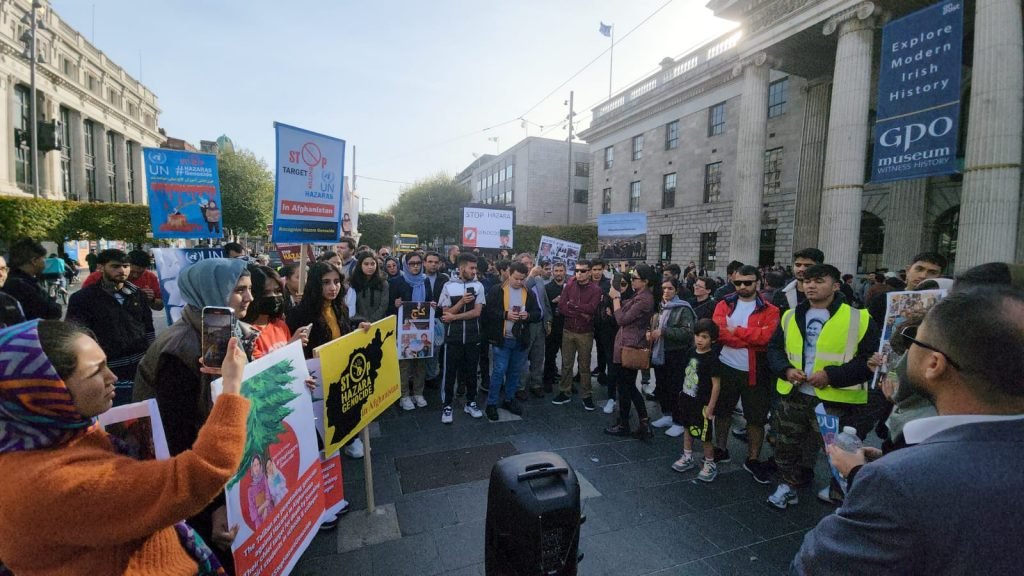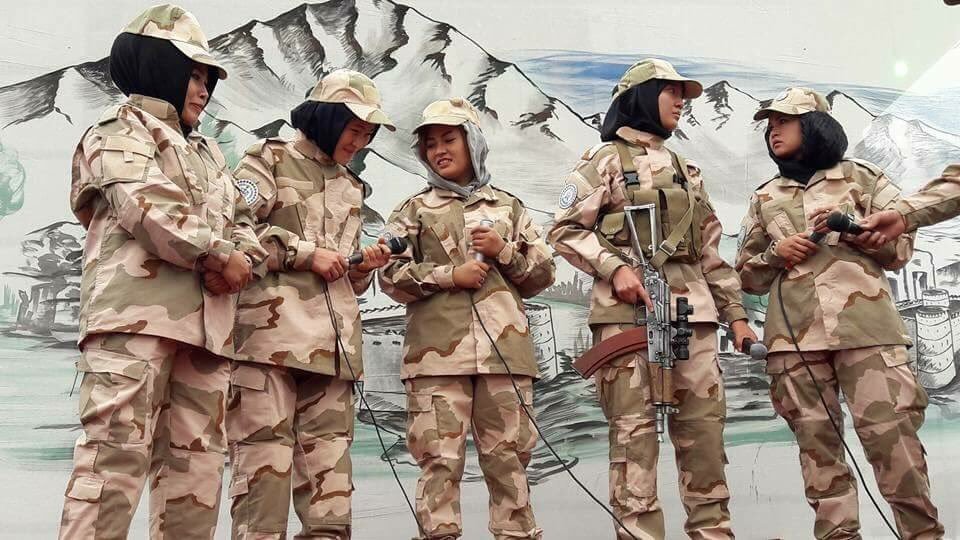While condemning the systematic and targeted attacks on Hazaras in Afghanistan, in particular the recent
attack at Kaaj Educational Center in Kabul in which 56 students, most of whom were female, were killed and
at least 115 were injured on 30 September 2022, we gather in solidarity with the Hazara community who are
subjected to genocide in Afghanistan.
As part of the world-wide campaign to #StopHazaraGenocide1 which has, as of 6 October 2022, 1nobilized
more than five million supporters on Twitter alone, we present the following specific demands to the
international community:
- We call on the United Nations and the broader international community to recognize the systematic
attacks against the Hazaras in Afghanistan as a crime of genocide. These attacks bear the hallmark of all
elements of the crime of genocide as per the UN Convention on the Prevention and Punishment of the
Crime of Genocide. - We call on the United Nations to urgently form a Commission of Inquiry into the genocide of Hazara
people in Afghanistan. The Commission should have the full mandate to investigate, gather information
and report to the United Nations on their fmdings and to recommend specific measures to stop and
prosecute the crimes of genocide a.gainst Hazara people in Afghanistan. - We call on all countties in the international community to take urgent measures for the protection of the
Hazaras in Afghanistan, including by creating an internationally assisted and monitored self-defence
mechanism. - We call on the International Criminal Court to open a case on the atrocities faced by the Hazara people
in Afghanistan and to investigate genocide against Hazaras. - We call on all countt·ies to p1ioritize the resettlement of Hazara refugees as a special group of highly
vulnerable people under serious threat of genocide in Afghanistan.
Context:
The current spate of systematic attacks on Hazaras fulfil elements of the definition of genocide. These attacks
have been specifically targeting Hazaras across Afghanistan and in all aspects of their public lives.
The Hazaras have long faced relentless systematic violence based on membership in an ethnic and belief
group. Under the Taliban regime in the late 1990s, Hazaras faced at least nine cases of massacres. In one
instance, the Taliban massacred over 2000 Hazaras in Mazar-e Sharif according to Humari Rights Watch.
Although, other sources have recorded the number of victims in this single instance with over 15,000.
According to a recent study, the Hazaras of Afghanistan have endured nearly 300 attacks since 2002. These
attacks, however, have a longer history.
These attacks amount to the crime of genocide, and fulfil the elements described in Article II of the Genocide
Convention of 1948. This had led international organizations like the US Holocaust Memorial Museum and
Genocide Watch. to raise the alarm on Hazara genocide. While we honour the victims of widespread violence
in Afghanistan from all ethnic groups, the Hazaras face such systematic attacks merely based on ethnicity and
faith, and because Hazaras strongly and openly adhere to human rights, especially women’s rights, freedom
of speech and education.
Since August 2021, genocidal attacks against the Hazaras have increased significantly, with an emerging
pattern of targeting Hazara youths. These systematic attacks have made it difficult for the Hazara people to
exist, as the Hazaras are attacked in educational centres, places of worship, hospitals, sporting facilities, public
gathering, highways, wedd.ing halls and schools. Therefore, we believe that the Hazaras are enduring a
continued genocide in Afghanistan.



